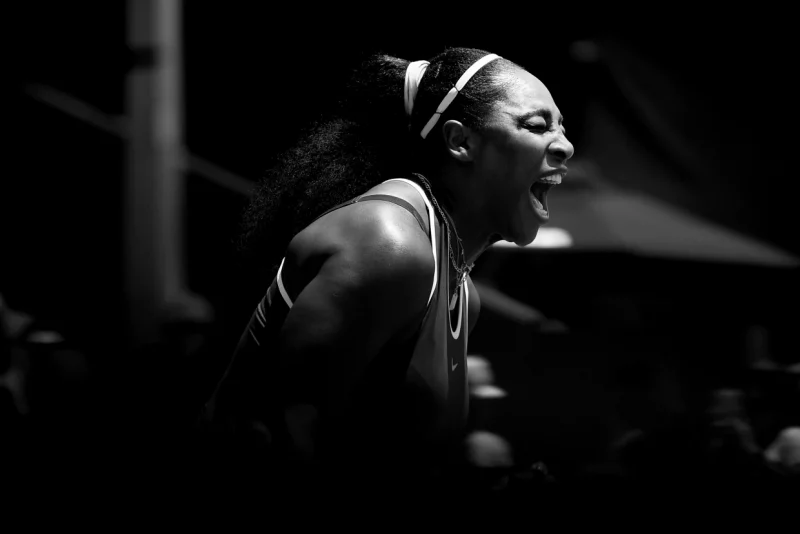Serena Williams’ legacy was powered by tennis – but her influence on Black girls and women was just as profound
Share
Explore Our Galleries
Breaking News!
Today's news and culture by Black and other reporters in the Black and mainstream media.
Ways to Support ABHM?
By Curtis Bunn, NBC News
“We relate to her triumphs and defeats . . . and what she has accomplished transcends the sport we love and will impact Black and brown girls and women forever,” tennis fan Kim Bell said.

When Serena Williams retires from tennis — whether it’s after the upcoming U.S. Open or sometime later — she will leave a legacy as the most dominant and influential women’s player in the game’s history.
Over more than two decades, Serena, who will be 41 next month, used her indomitable spirit to obliterate opponents and record books, earning 23 Grand Slam singles titles among 73 career singles championships. She earned 10 of those major titles after 30 years old, when some players look to retire. She spent 319 weeks as the No. 1 player in the world and returned to the top spot after nearly 15 years — a record. She also won four Olympic gold medals, among other feats.
Those extraordinary numbers aside, though, it is Serena’s inspiring ascension from the mean streets of Compton, California, to becoming one of the greatest in tennis that has made her a pop culture icon and inspired Black girls across the globe to take up the once-exclusive sport.
She and her older sister, Venus Williams, another tennis great, burst onto the tennis courts and into Black America’s heart in the mid-1990s, with their no-nonsense father and coach Richard Williams, who directed, cajoled and motivated them. Their father told the world to watch out for Serena after Venus had established herself as the best player in the world. He was right.
Read more about William’s rise to the top and legacy.
Some have highlighted the erasure of Black female excellence as it applies to Serena.
Check out other breaking news stories.









Comments Are Welcome
Note: We moderate submissions in order to create a space for meaningful dialogue, a space where museum visitors – adults and youth –– can exchange informed, thoughtful, and relevant comments that add value to our exhibits.
Racial slurs, personal attacks, obscenity, profanity, and SHOUTING do not meet the above standard. Such comments are posted in the exhibit Hateful Speech. Commercial promotions, impersonations, and incoherent comments likewise fail to meet our goals, so will not be posted. Submissions longer than 120 words will be shortened.
See our full Comments Policy here.